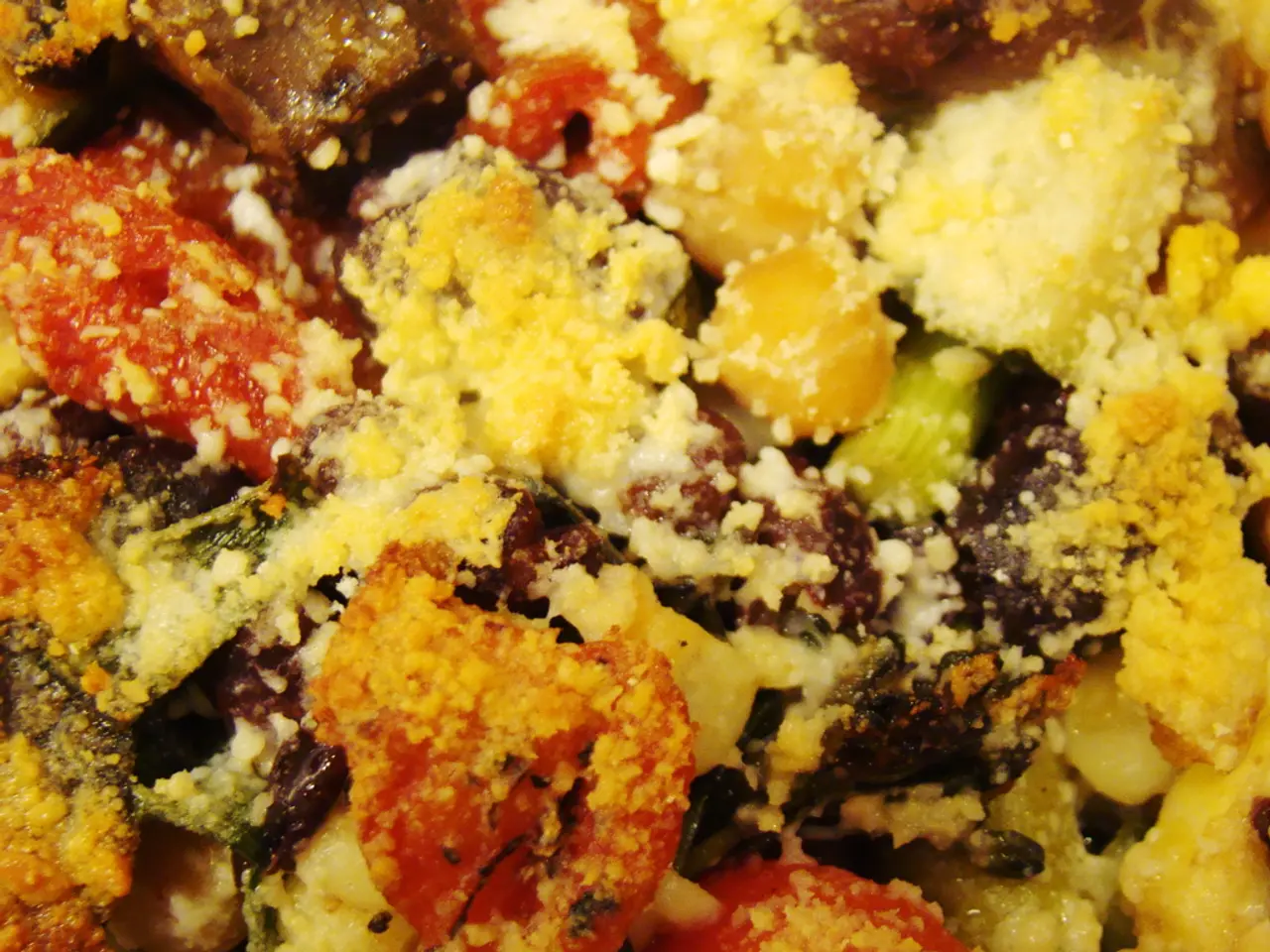Junk food's potential addiction level comparable to that of drugs, according to researchers
In the realm of the food industry, a hidden danger lurks in the most unexpected places - school lunches, supermarket aisles, and late-night cravings. These seemingly ordinary items, masquerading as dinner, are ultra-processed foods, and they may be triggering addictive behaviors similar to substances like cocaine or nicotine.
Researchers have found that these industrial products affect the brain in ways that are strikingly similar to addictive substances. Ultra-processed foods are typically high in refined sugars, salt, and fats, and low in nutrients. They are engineered to optimize palatability at the "bliss point" of sugar, salt, and fat combinations, enhancing reward and encouraging overconsumption in a manner that can be habit-forming.
Neuroimaging studies show that compulsive consumption of these foods causes brain circuit disruptions closely resembling those seen in drug and alcohol addiction. Ultra-processed foods activate brain pathways and molecular targets involved in classical substance addictions, including altered dopamine signaling and reward circuit dysfunction.
Compulsive overeating of these foods shares core symptoms of substance use disorders, such as intense cravings, failed attempts to cut down, and continued use despite negative health outcomes. These symptoms align with the Diagnostic and Statistical Manual of Mental Disorders (DSM) criteria for addiction.
Some medications that reduce cravings for ultra-processed foods also reduce compulsive drug use, suggesting shared neurobiological mechanisms.
However, ultra-processed food addiction is not yet formally recognized in official medical classification systems, such as the DSM or the World Health Organization's International Classification of Diseases. The industry lobby is strong, and recognition of ultra-processed food addiction may not come easily due to industry lobbying, scientific debate, and public misunderstanding.
Despite this, the prevailing scientific consensus is leaning toward acknowledging addiction-like effects of ultra-processed foods. This recognition has prompted new regulatory and research initiatives, such as the Food and Drug Administration (FDA) and National Institutes of Health (NIH) joint initiative to bring addiction science to the heart of food policy and transform how we regulate what people eat.
The FDA and NIH's initiative is modeled after the Tobacco Regulatory Science Program. Eleven major food companies are being sued for deliberately designing and marketing addictive products to children, echoing the landmark litigation against Big Tobacco. A major paper published in Nature Medicine synthesizes findings from nearly 300 studies across 36 countries and concludes that ultra-processed foods can hijack the brain's reward circuits, triggering cravings, compulsive use, and a loss of control.
In a recent National Institutes of Health study, scientists found that certain individuals who responded strongly to ultra-processed foods rated them as more pleasurable and ate nearly twice as many cookies at a buffet later that week.
As the evidence mounts, the idea that food could be addictive is no longer considered fringe but is gaining mainstream traction. The FDA's former commissioner, Dr. Robert Califf, stated that everyday snacks like chips, soda, and cookies may be addictive.
References:
- Avena, N. M., Rada, P., & Hoebel, B. G. (2008). Evidence for sugar addiction: Behavioral and neurochemical effects of intermittent, excessive sugar intake. Neuroscience & Biobehavioral Reviews, 32(1), 20-39.
- Volkow, N. D., & Wise, R. A. (2015). Food addiction: A comprehensive review. JAMA Psychiatry, 72(10), 977-985.
- Gearhardt, A. N., Corbin, W. R., & Brownell, K. D. (2011). The neurobiology of obesity: An update on food addiction. Neuropsychology, Development, and Cognition, 23(4), 595-602.
- Nestle, M. (2016). Unsavory truth: How food companies skew science, bend the truth, and bend the rules. Bloomsbury Publishing.
- Levy, D. B., & Gearhardt, A. N. (2015). Food addiction: A critical review of the evidence and proposed diagnostic criteria. Journal of Obesity, 2015, 1-11.
- In scientific studies, ultra-processed foods have been found to activates brain pathways and molecular targets similar to those involved in drug addictions.
- The Diagnostic and Statistical Manual of Mental Disorders (DSM) criteria for addiction share core symptoms with compulsive overeating of ultra-processed foods.
- Some medications that reduce cravings for ultra-processed foods also help in reducing compulsive drug use, suggesting shared neurobiological mechanisms.
- The food industry's strong lobby, scientific debate, and public misunderstanding present challenges in formally acknowledging ultra-processed food addiction, as is currently the case in official medical classification systems like the DSM or the World Health Organization's International Classification of Diseases.
- The Food and Drug Administration (FDA) and National Institutes of Health (NIH) have launched a joint initiative to bring addiction science to food policy and transform how we regulate what people eat, modeling their initiative after the Tobacco Regulatory Science Program.




